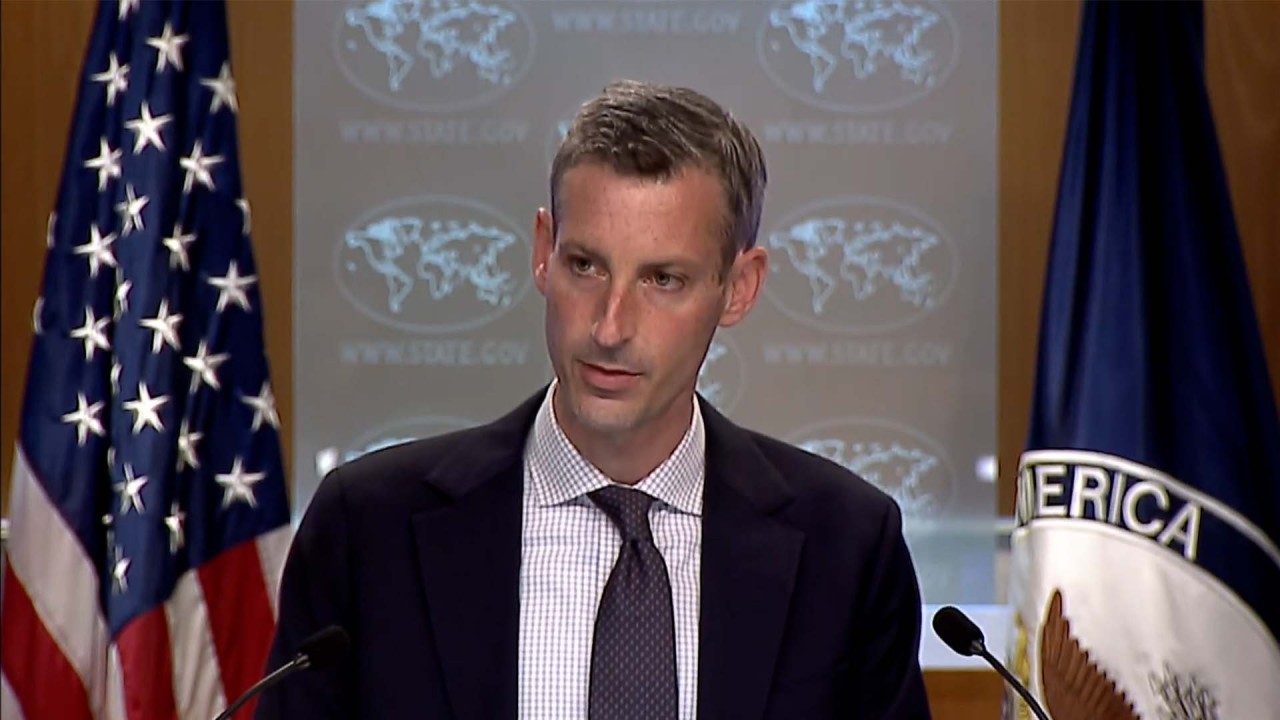
Biden sparks confusion with commitment to Taiwan’s defence if Beijing attacks
- US president affirms that Washington would defend the island if it was attacked by mainland forces, contradicting long-standing position
- The last time he made similar remarks the White House stressed the administration’s Taiwan policy had ‘not changed’
Asked by CNN’s Anderson Cooper during a prime-time town hall event on Thursday whether the US would defend Taiwan if it was attacked by mainland forces Biden responded: “Yes, we have a commitment to do that.”
Though Washington does not have official diplomatic relations with Taipei, US law requires it support the island’s efforts to defend itself, including through the sales of weapons. But the Taiwan Relations Act does not include an explicit commitment to intervene militarily in the event of an invasion of or attack on Taiwan by the mainland.
Ex-national security adviser says US need not change ‘ambiguity’ on Taiwan
Chinese foreign ministry spokesman Wang Wenbin called on the US not to send the wrong signals to proponents of Taiwanese independence.
“No one should underestimate the determination and the capacity of the Chinese people to maintain [China’s] sovereignty and territorial integrity,” Wang said on Friday. “China has no room for concessions when it comes to its core interests.”
The US has long maintained a policy of strategic ambiguity on Taiwan, opting not to state whether it would take military action if the island came under attack. The strategy is designed to discourage Taiwan from taking any unilateral action to declare full independence, while also dissuading Beijing from unilaterally seeking to annex the island.
“RIP strategic ambiguity,” Derek Grossman, a senior defence analyst at the Rand Corporation, wrote in a tweet soon after Biden’s remarks.
But Shi Yinhong, an international relations professor at Renmin University, said strategic ambiguity would still be the direction for US policy towards Taiwan, though it was shifting towards more security cooperation with the island.
Biden’s comments marked the second time in recent weeks that he has prompted questions over his administration’s commitment to the strategic ambiguity principle. In August he told ABC News that the US would “respond” to a mainland Chinese attack on Taiwan.
US position on Taiwan unchanged despite Biden comment on defending island
As it did in August, the White House soon walked back Biden’s comments at the town hall, stressing that the administration’s Taiwan policy had not changed.
“The US defence relationship with Taiwan is guided by the Taiwan Relations Act,” said a White House representative. “We will uphold our commitment under the act, we will continue to support Taiwan’s self-defence, and we will continue to oppose any unilateral changes to the status quo.”
“The president was not announcing any change in our policy and there is no change in our policy,” the official said.
Biden’s latest comments followed a longer response to a question about whether the US could to keep up with China’s military advances, in light of recent reports by the Financial Times that Beijing had tested advanced hypersonic missiles. The reported tests took US officials by surprise, but were dismissed by the Chinese foreign ministry which said it was a “routine test of a space vehicle”.

01:41
US ‘deeply concerned’ despite China denying it recently tested hypersonic nuclear missile
“China, Russia, and the rest of the world knows we have the most powerful military in the history of the world,” Biden said. “Don’t worry about whether they’re going to be more powerful. But what you do have to worry about is whether they’re going to engage in activities that will put them in a position where they may make a serious mistake.”
Recent talks between US and Chinese officials, including a September call between Biden and Chinese President Xi Jinping, have focused on efforts to responsibly manage competition between the two countries and avoid bilateral frictions from veering into conflict.
US ambassador to China nominee takes tough line on Beijing
Calling himself the world leader who has spent the most time with Xi, Biden stressed that he did not want to escalate tensions with China, echoing remarks made in his address to the United Nations General Assembly in September.
“I don’t want a cold war with China,” he said. “I just want to make China understand that we are not going to step back, we are not going to change in any of our views.”
Thursday’s exchange came a day after Biden’s pick for US ambassador to China, Nicholas Burns, said during a confirmation hearing that the administration could not trust China to uphold its commitments on Taiwan, and that the US had “enormous latitude” to deepen its security help to Taiwan.
But Burns rejected suggestions from senators that the US should abandon its long held policy of strategic ambiguity.
“My own view, and this is also the view of course and more importantly of the Biden administration, is that the smartest and effective way for us to help deter aggressive actions by [China] across the Taiwan Strait will be to stay with a policy that’s been in place,” he said.
Additional reporting by Jun Mai

